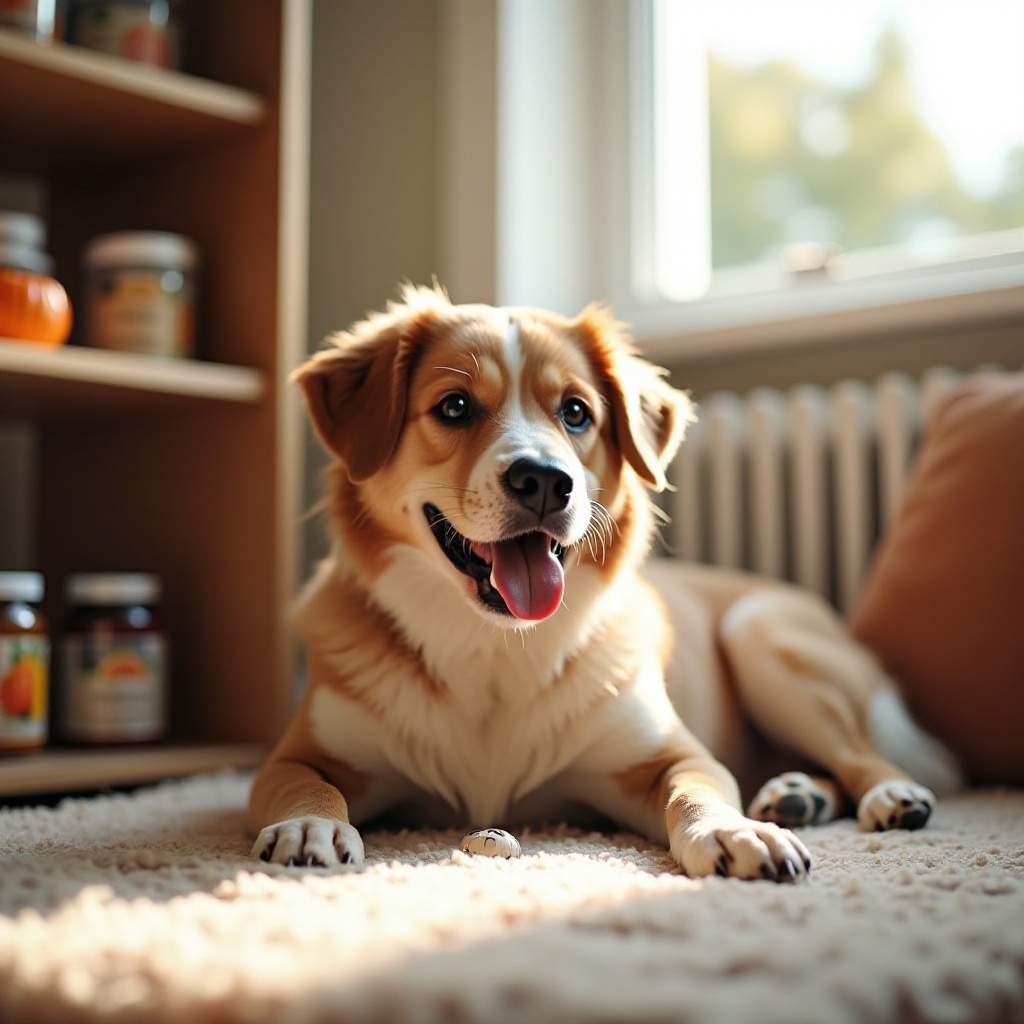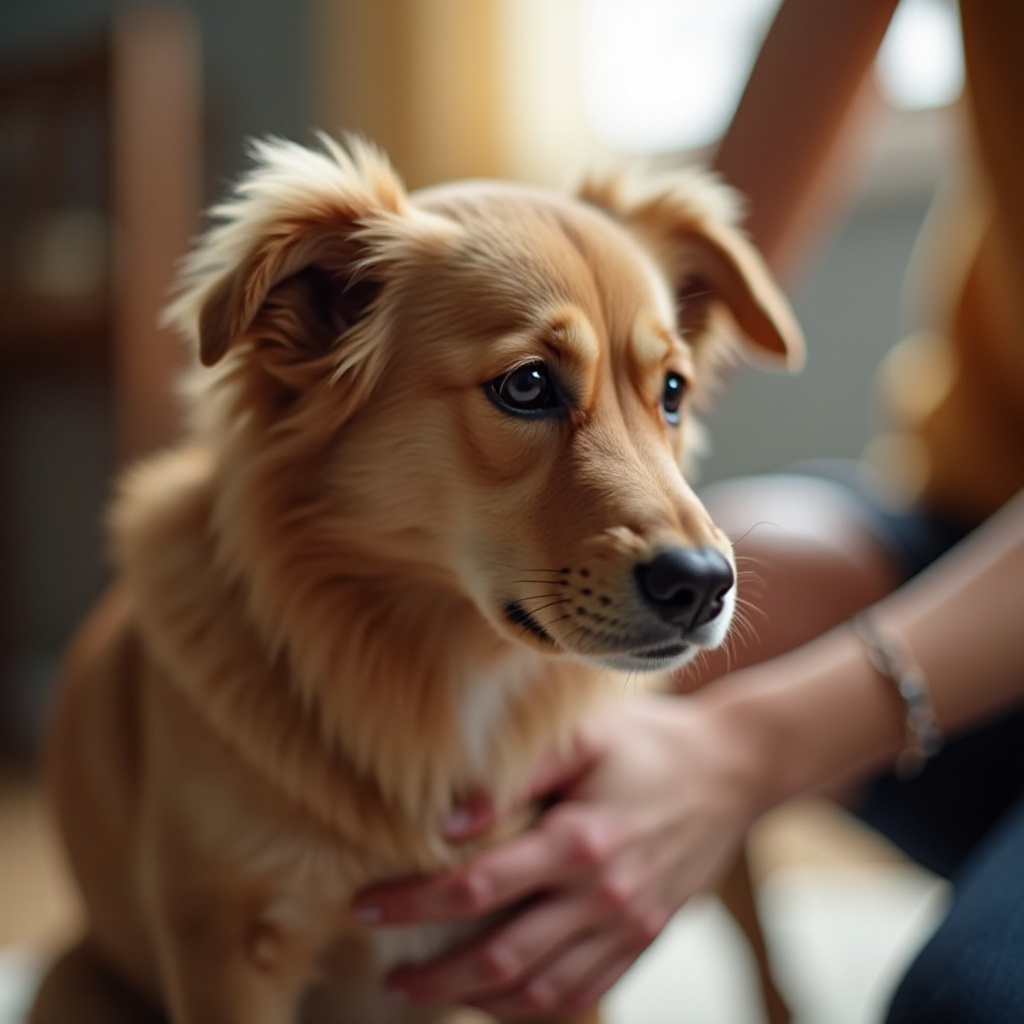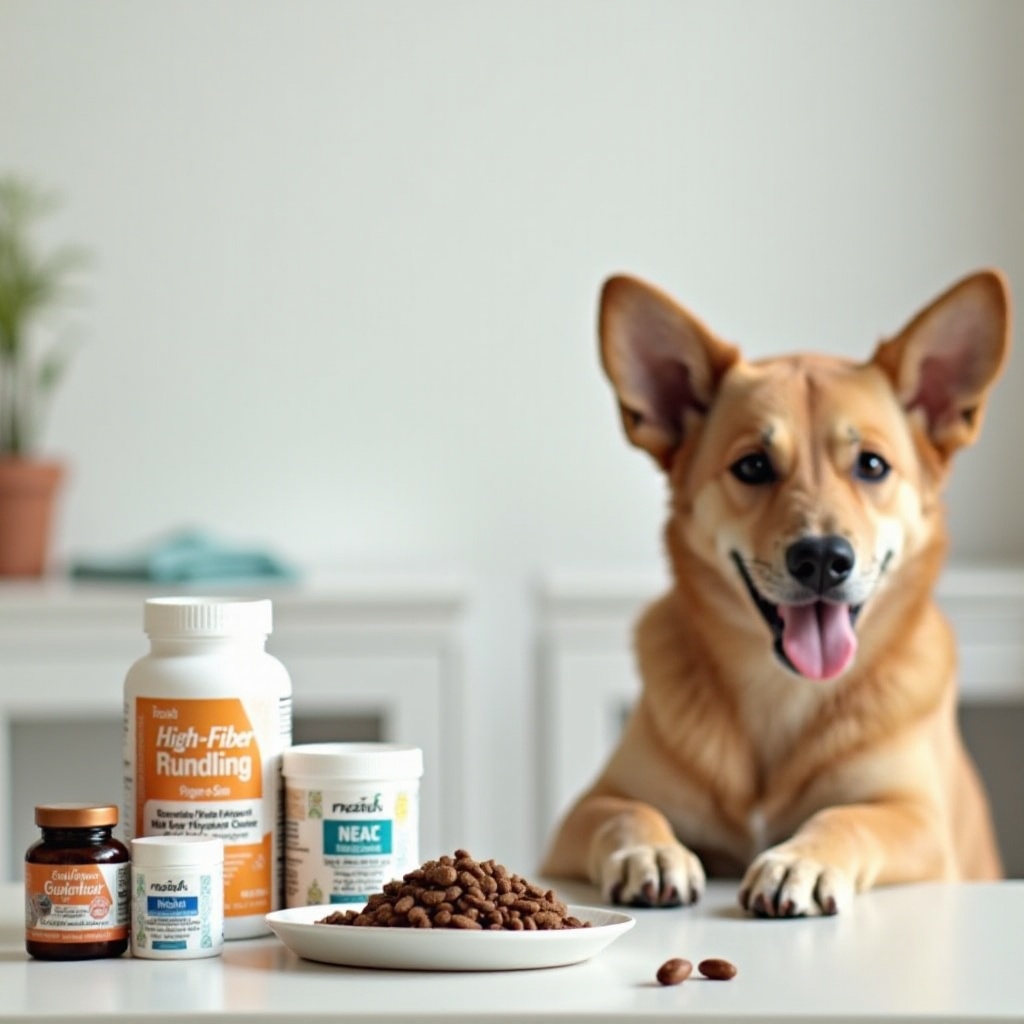Introduction
Dealing with a constipated dog can be distressing for both you and your pet. Finding safe, effective remedies to alleviate your dog’s discomfort is essential for their well-being. In this article, you’ll discover various home remedies for dog constipation. From adjusting their diet to encouraging exercise, we will cover the effective and simple measures you can take right at home.

Understanding Constipation in Dogs
Constipation in dogs occurs when they have difficulty passing stools or when their bowel movements become infrequent. A dog experiencing constipation may strain, pass dry and hard stools, or fail to defecate completely. This condition can lead to discomfort and potential health issues if not addressed promptly.
Constipation is a common issue among dogs, but it’s important to recognize it early. When untreated, it can lead to more severe complications, such as bowel obstruction or megacolon. Therefore, pet owners should be vigilant and ready with practical solutions to ensure their furry friends remain comfortable and healthy.
Common Causes of Constipation in Dogs
Understanding the underlying causes of constipation in your dog is essential to formulate an effective treatment plan. There are several factors that can contribute to this condition:
- Diet: A lack of dietary fiber is one of the most common causes of constipation in dogs. Feeding your dog low-fiber foods can result in hard, dry stools.
- Dehydration: Insufficient water intake can cause the stool to become hard and difficult to pass. Ensuring your dog stays hydrated is vital.
- Lack of Exercise: Physical activity stimulates bowel movements. Inactive dogs are more likely to suffer from constipation.
- Ingesting Foreign Objects: Dogs tend to chew and swallow things they shouldn’t. These foreign bodies can obstruct the intestines.
- Medical Conditions: Underlying health issues such as anal gland problems, neurologic disorders, or pelvic injuries can also cause constipation.
Identifying the specific cause can help you apply the right home remedy to relieve your dog’s condition effectively.

Symptoms of Constipation in Dogs
Recognizing the symptoms of constipation in dogs can aid in early intervention. Here are the signs that your dog may be constipated:
- Straining: Frequent attempts to defecate with little or no result.
- Dry, Hard Stools: When your dog passes hard, pebble-like stools.
- Infrequent Bowel Movements: Noticeable reduction in the frequency of defecation.
- Painful Defecation: Signs of discomfort or yelping during bowel movements.
- Lethargy: Reduced energy levels and reluctance to engage in daily activities.
- Loss of Appetite: Reluctance to eat due to discomfort.
If you observe any of these symptoms, implementing home remedies can help alleviate your dog’s constipation.
Home Remedies for Dog Constipation
There are several tried-and-tested home remedies that can help relieve your dog’s constipation. By making simple changes, you can improve their bowel movements and overall comfort. It’s essential to approach each remedy carefully and track your dog’s response to find the most effective solution.
Increase Dietary Fiber
Adding fiber to your dog’s diet can help soften stool and promote regular bowel movements:
- Canned Pumpkin: Offering a small amount of plain, canned pumpkin to your dog can be effective. Pumpkin is high in fiber and moisture.
- Bran Flakes: Mixing bran flakes in your dog’s food can help bulk up their stool.
- Vegetables: Adding vegetables like carrots, sweet potatoes, or green beans to their diet can increase fiber intake.
Ensure Adequate Water Intake
Good hydration is crucial to prevent and treat constipation:
- Fresh Water: Always ensure your dog has access to clean, fresh water.
- Wet Food: Switching to wet dog food can increase their water intake through their diet.
- Broth: Adding a little low-sodium broth to their water bowl may encourage them to drink more.
Encourage More Exercise
Exercise is vital for stimulating bowel movements:
- Walks: Regular walks can help your dog stay active and prompt bowel activity.
- Playtime: Engage your dog in physical activities like fetch or tug-of-war.
- Dog Parks: Visiting dog parks can provide both exercise and mental stimulation.
Use Natural Lubricants
Natural lubricants can ease the passage of stool:
- Olive Oil: A small amount of olive oil added to your dog’s food can help.
- Coconut Oil: Similarly, coconut oil can act as a mild laxative.
Warm Baths and Massages
Warm baths can relax your dog’s muscles and aid in bowel movement while massages stimulate peristalsis:
- Warm Bath: A warm bath can help relax your dog’s abdominal muscles.
- Abdominal Massage: Gently massaging your dog’s abdomen in a circular motion may stimulate bowel movements.
Recommended Dog Health Supplies for Constipation
Certain products can support the treatment and prevention of constipation in dogs, ensuring they maintain a healthy digestive system.
High-Fiber Foods
Opt for high-quality, high-fiber dog foods to naturally enhance your dog’s digestion:
- Specialized Dog Foods: Many brands offer high-fiber formulas designed specifically for digestion health.
- Homemade Additions: You can add fiber-rich foods like oatmeal or brown rice to their meals.
Hydration Solutions
Maintaining proper hydration is critical:
- Water Fountains: These can encourage dogs to drink more.
- Electrolyte Solutions: Specially formulated solutions for dogs that need increased hydration.
Digestive Aids
Certain products can stimulate digestion and ease constipation:
- Probiotics: These supplements support gut health and regularity.
- Digestive Enzymes: Adding these to your dog’s meals can improve digestion and bowel movements.

When to Consult a Veterinarian
While home remedies can be effective, it is essential to know when professional help is necessary. Consulting a veterinarian is crucial if:
- Your dog’s constipation persists for more than two days.
- There is blood in your dog’s stool.
- Your dog is vomiting or shows signs of severe discomfort.
- There is a noticeable, unexplained change in your dog’s eating habits or weight.
Professional intervention ensures any underlying issues are addressed promptly.
Preventing Future Constipation in Dogs
Preventing constipation involves maintaining a healthy lifestyle for your dog:
- Balanced Diet: Ensure their diet is rich in fiber.
- Hydration: Always provide fresh water and encourage drinking.
- Regular Exercise: Keep your dog active with daily walks and play.
- Regular Check-ups: Regular vet visits to monitor overall health and address concerns early.
Conclusion
Effectively managing and preventing constipation in dogs requires a combination of dietary adjustments, hydration, exercise, and proper care. By understanding the causes and symptoms, applying home remedies, and knowing when to seek veterinary assistance, you can ensure your dog leads a comfortable and healthy life.
Frequently Asked Questions
What are the first signs of constipation in dogs?
The first signs include straining during bowel movements, dry and hard stools, and infrequent bowel movements.
Can I use human laxatives for my dog?
No, you should never use human laxatives on your dog without consulting a veterinarian. They may cause harm or adverse effects.
How often should I monitor my dog’s bowel movements?
Regular monitoring is essential. Keep an eye on their bowel movements daily to catch any signs of constipation early.
